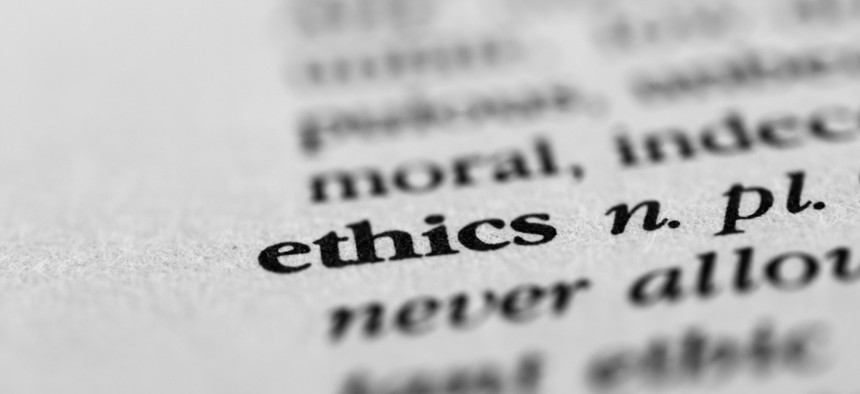
Erce/Shutterstock.com
In a Memo, the U.S. Ethics Chief Reminds 'Everyone' in the Executive Branch What Ethics Are
Shaub's latest memo never mentions Trump, but seems aimed right at him.
Walter Shaub, the director of the US Office of Government Ethics, which has emerged as an unexpected hurdle to Donald Trump’s plan to keep his business while president, published a “director’s note” on Friday.
It doesn’t name Trump, but seems clearly aimed at him.
Shaub’s note, the first director’s note the agency has published on its website in almost two months, explains the executive branch employee rule about “misuse of position,” which reflects a view “that one definition of corruption is the abuse of entrusted power for private gain.” The rule, he notes, prohibits executive branch employees from:
- Using public office for their own private gain, for the private gain of friends, relatives, or persons with whom they are affiliated in a non-government capacity;
- Endorsing any product, service, or company;
- Engaging in financial transactions using nonpublic information, or allowing the improper use of nonpublic information to further private interests; and
- Misusing government property or official time.
It is part of the “Standards of Ethical Conduct” for the US government’s executive branch employees, Shaub explains. “These rules serve to guard the federal service against ethical problems that could undermine public confidence in the integrity of the government’s operations,” he said. “By focusing on this rule and their other basic ethical obligations, employees can truly honor the principle that public service is a public trust.”
One mainstay of the Trump Organization is endorsements, and Trump’s daughter and son-in-law both have businesses of their own which create potential conflicts for the incoming president. Those have already cropped up—in one instance his daughter Ivanka accompanied Trump on a meeting with Japanese prime minister Shinzo Abe, as her company was negotiating a deal with a Japanese firm with state backing.
NEXT STORY: The Results Are In: Nobody Trusts Anyone Anymore






